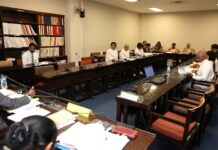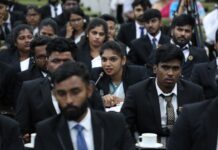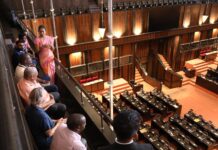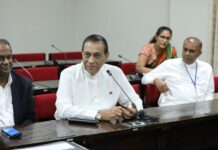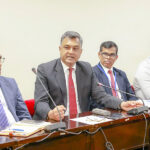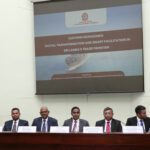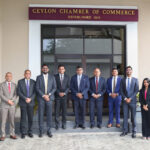TPA Leader Mano Ganesan MP
The government came under local and foreign pressure to hold Provincial Council elections. Hence, it has agreed to hold the Provincial Council elections under Proportionate Representation (PR) system.
Tamil Progressive Alliance (TPA) Leader Mano Ganesan said, that it is not possible to hold elections under Mixed system. “If the elections are to be held on a Mixed system, the demarcation of boundaries have to be redefined. This is a long term process,” he added.
He noted that to prevent delaying the elections further, the government and the opposition agreed to hold the election on the PR system, but, this is a temporary agreement. “Therefore, electoral reforms will continue. The next meeting of the Parliamentary Select Committee (PSC) will be held on the 22nd of this month,” said TPA leader MP Mano Ganesan.
The TPA Leader further said “If we try to change the electoral system at this point, it would only lead to greater delays. Therefore, we stood out ground that the elections must be held and as a result, the government and the opposition were able to come to an agreement at the PSC meeting,” he said.
Ganesan noted that at the PSC meeting, earlier the government members had demanded the Mixed system and rejected the Proportional system.
“But, we opposed this position because it was intended to push aside smaller parties which chose the path of democracy with alternative policies, and to jeopardize the parliamentary and provincial representations of the minority parties representing their communities scattered throughout the country,” he pointed out.
Parties including the SJB and JVP supported the position for Proportional system. “Tamil Progressive Alliance, Tamil National Alliance, Sri Lanka Muslim Congress and the All Ceylon Makkal Congress are also of the view that the proportional system should not be changed,” Ganesan noted.
He said that he had also conducted discussions with the leaders of the smaller parties in the government regarding this and they too exerted pressure on the government.
Parliament and Provincial Councils are institutions those discuss bills at the national and provincial levels. Therefore, Ganesan noted that there is no need for MPs to represent local electorates.
However, he said that the local government council members who are responsible for the day to day needs of the people, including water, electricity and roads, need to represent local wards.
“Therefore, our stance is that the Parliament and the Provincial Councils do not need the mixed system to pick members to represent local electorates. But as for the LG bodies there is a need for members representing local wards.”
Also, Ganesan noted that a wrong notion has been created in the country against preferential voting system. He said preferential vote is the pinnacle of democracy. The preferential voting system rescues prospective voters from casting their votes only to the candidate nominated by the party hierarchies.
“At the time of voting for their preferred party, every voter is given the “democratic freedom” to choose the candidate of their choice by preferential vote. We need to understand this clearly.”
In view of the all-powerful executive presidency that was further strengthened by 20th amendment to the constitution, we propose the Parliament, Provincial Councils shall be elected by total proportionate electoral system that would ensure representation room for all ethnic and social segments of Sri Lanka. Therefore, the Parliament and PCs shall act as “Check & Balance Apparatuses” parallel with executive presidency in the interests of democracy.





